 |
The Commission for Case Manager Certification (CCMC) and the Case Management Society of America (CMSA) announced an agreement today to work collaboratively to promote case manager professional development. CMSA will promote and support the CCM certification and, in turn, CCMC will promote and support membership in CMSA's case management association.
The collaboration is a natural one between the oldest and largest non-membership NCCA-accredited case manager certification body and the oldest and largest case management membership organization. While their roles are separate, both share a similar vision: advancing professional case managers in their career paths to ensure high quality, ethical practice benefitting patients and their families.
"Case managers play a pivotal role in today's team-based health care models emphasizing coordinated, effective care delivery," said MaryBeth Kurland, CAE, the Commission's CEO. "Our emphasis to prepare and develop a viable case manager workforce aligns with CMSA's. By working collaboratively with the premier case manager membership organization, we strengthen our health care system, enabling a workforce that's ready to meet today's health care needs."
The Commission's Certified Case Manager® (CCM®) credential, held by more than 42,000 case managers, is cross-cutting across settings and applicable to professionals from a range of training backgrounds, validating quality and ethical practice. The Commission also oversees the field's professional code of conduct. The Case Management Society of America (CMSA) is the leading membership association providing professional collaboration across the full health care continuum to advocate for patients' wellbeing and improved health outcomes by fostering case management growth and development, impacting health care policy and creating and sustaining the Standards of Practice for Case Management.
"For decades, CMSA and CCMC have been dedicated to the professional growth of case managers as they navigate their careers in an ever-changing health care system," says CMSA Executive Director Kathleen Fraser, MSN, MHA, RN-BC, CCM, CRRN. "Through this collaborative, two premier organizations in the case management field are now working together to establish a roadmap for the future of case management education, certification and recognition."
"Our collaboration will enrich the case manager community," says Mary McLaughlin Davis, DNP, ACNS-BC, NEA-BC, CCM, CMSA national president. "We are natural partners, working to enhance quality outcomes for our patients and case managers."
|

We're less than two weeks away from our annual conference in Austin, but there's still time to register and book your accommodations!
If you missed this week's Know Before You Go webinar, you can listen on demand here. The webinar shares everything you need to know about the event, from our mobile app to sessions and everything in between.
Whatever you're looking for in a transformation, we'll have it for you this summer. We'll see you very soon!
Learn More & Register
|

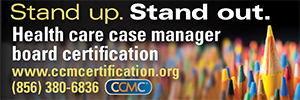
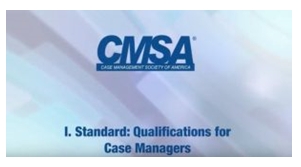 "Professional Case Managers Add Value to the Health Care System and Health Care Consumers"
On September 13-14, 2017, come to Capitol Hill with fellow CMSA members, CMSA’s Public Policy Committee and Board of Directors to play a direct role in the legislative process by meeting with your House and Senate representatives.
You’ll be able to highlight the critical role that case managers play in healthcare delivery, explore how to utilize your local networks for grassroots legislative success and ensure that case managers are speaking for case managers.
Attendance for the 2017 Day on the Hill is open to all current CMSA members. If you are a CMSA member who is passionate about association issues and wants to make a difference by advocating with fellow healthcare professionals from across the country, you won’t want to miss this event!
|
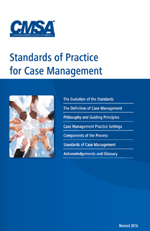
Download CMSA's Standards of Practice for Case Management, 2016 revision, which provides practice guidelines for the case management industry and its diverse stakeholders.The impetus for the 2016 revision of the Standards is the need to emphasize the professional nature of the practice and role of the case manager.
The 2016 Standards contain information about case management including an updated definition, practice settings, roles and responsibilities, case management process, philosophy and guiding principles, as well as the standards and how they are demonstrated.
Download Your Copy
|
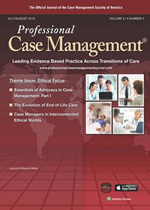 Professional Case Management is a
peer-reviewed, contemporary journal that crosses all case management settings.
The Journal features best practices, industry benchmarks and hands-on
information for both the professional case manager and those newer to the
specialty. Additionally, PCM provides continuing education opportunities
and cutting-edge research, as reflected in the tagline, Leading Evidence Based
Practice Across Transitions of Care. Professional Case Management is a
peer-reviewed, contemporary journal that crosses all case management settings.
The Journal features best practices, industry benchmarks and hands-on
information for both the professional case manager and those newer to the
specialty. Additionally, PCM provides continuing education opportunities
and cutting-edge research, as reflected in the tagline, Leading Evidence Based
Practice Across Transitions of Care.
Professional Case Management
Print Upgrade
All members
receive complimentary online access to Professional Case Management, the
official journal of CMSA, as a benefit of membership. A print subscription to Professional
Case Management is now available to all members for an additional $35.00
fee (per year). To add the print version to your subscription, please call
Lippincott Williams & Wilkins' Member Services at 1-866-489-0443 and
reference promotion code MGK296ZZ. Learn More
Discounted CEs from
Lippincott, Williams, and Wilkins
As part of
your CMSA member benefits, you have access to discounted continuing education
opportunities through our journal publishing partner, Lippincott Williams &
Wilkins. Content is based on peer-reviewed Lippincott journals, trusted by
nurses globally to provide current, evidence-based and authoritative content
critical to everyday practice. All CE activities in Professional Case
Management are discounted 25 percent.
This
includes CCMC, ANCC, NAHQ, and NASW contact hours. To access activities, take
these steps:
1. Go to http://nursing.ceconnection.com/default.
Log in using your NursingCenter.com user ID and password.
2. Visit http://nursing.ceconnection.com/browse/sources/28 and enter the offer code "CMSA" into the coupon field upon check out.
3. Complete check out and enjoy.
|

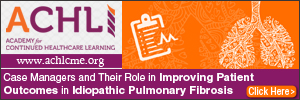
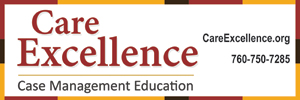
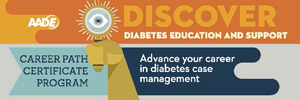
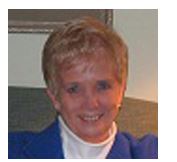 Pat Stricker, RN, MEd
Senior Vice President, TCS Healthcare Technologies
We are used to sophisticated, complex technological tools providing improved patient clinical outcomes, but it is unexpected to see common, basic technological tools that are used by all of us on daily basis (the internet, email, and cell phones) make significant impacts on patients’ lives and the cost of healthcare. The following research studies exemplify simple, innovative approaches that resulted in meaningful change, improved quality of life, and significant cost savings.
Simple Technology Tools Boost Cancer Survival Rates
A clinical trial, conducted by Dr. Ethan Basch at the Sloan Kettering Cancer Center in New York from September 2007 to January 2011, consisted of 766 patients receiving chemotherapy for metastatic solid tumors. The goals of the study were: (1) to provide a quick, easy way to report complications in "real-time", so they could be treated immediately, rather than waiting until the next office visit; and (2) to improve the patient’s quality of life.
|

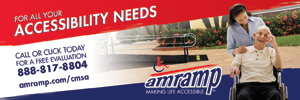
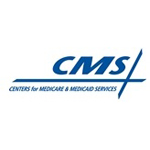 The Centers for Medicare & Medicaid Services (CMS) on June 8 issued a Request for Information (RFI) seeking recommendations and input from the public on how to create a more flexible, streamlined approach to the regulatory structure of the individual and small group markets. Our goal through this process is to identify and eliminate or change regulations that are outdated, unnecessary, or ineffective; impose costs that exceed benefits; or create inconsistencies that otherwise interfere with regulatory reform initiatives and policies.
"We are looking for valuable feedback on how to change existing regulations in ways that put patients first, promote greater consumer choice, enhance affordability and return more control over healthcare to the States," said CMS Administrator Seema Verma. "Through this step, CMS is asking consumers to send us innovative ideas that will help stabilize and strengthen the individual and small group health insurance markets."
Source: Centers for Medicare & Medicaid Services
|
 The LTC Continuum, Care Management Primer by Ellen Aliberti, RN, BSN, CCM, MS
U.S. citizens are turning sixty-five years of age at an alarming rate; the U.S. Census Bureau indicates that, beginning in 2015, an average of 10,000 people are turning 65 every day. This phenomenon will continue for nearly 20 years as the "baby boomers" reach retirement age, increasing the demand for community-based and long-term services exponentially. Case managers must be fluent in the long-term care continuum to help guide patients and families in making care decisions. Considerations regarding functional status, financial means and diagnoses are all key factors involved in care coordination for long-term care patients. The information below will assist you in becoming familiar with this aspect of the care continuum.
Rehabilitation Center/Skilled Nursing Facility (SNF): These facilities often service two distinct patient populations: those requiring short-term rehabilitation (PT, OT, ST) or skilled nursing care for continued IV antibiotics or wound care, and those patients who require 24-hour care and supervision and assistance with basic activities of daily living (ADLs). The latter group is considered residential care recipients as the setting becomes their permanent residence.
|
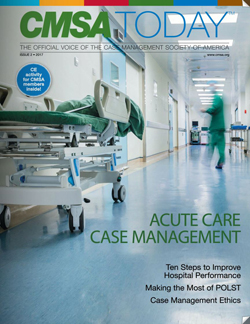 CMSA Today™—the official magazine of the Case Management Society of America—is the magazine for case managers. We are committed to providing case management knowledge, perspectives and news to case managers in all sectors of the profession. To facilitate that mission, we accept and consider: CMSA Today™—the official magazine of the Case Management Society of America—is the magazine for case managers. We are committed to providing case management knowledge, perspectives and news to case managers in all sectors of the profession. To facilitate that mission, we accept and consider:
- Original articles written by case managers of all healthcare backgrounds;
- Expertly prepared articles from professional writers—whether medical
writers or experienced generalists—on case management topics;
- Feature articles, column material, and news about case management
trends and issues, as well as about CMSA chapters and their activities;
- and personal, member-generated items considered nontraditional for a
professional-association publication as poems, remembrances and similar
sorts of content.
Consider sharing your knowledge by writing and submitting an article! Click below to learn more.
Learn More
|

|
| |
|

